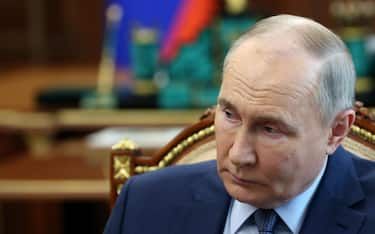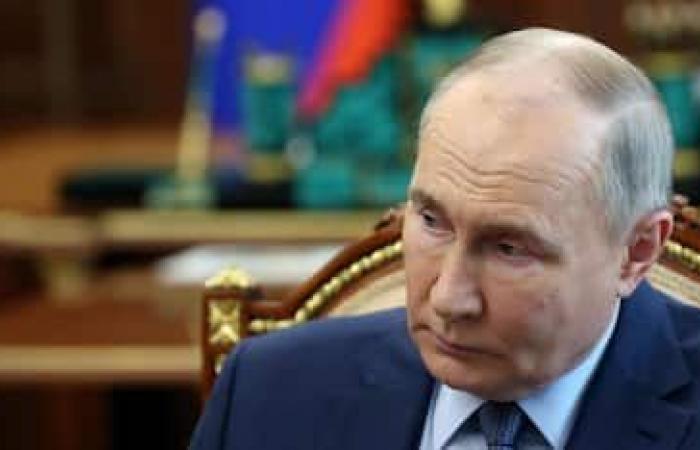Prime Minister Giorgia Meloni is busy in Parliament today, where she is holding communications before the European Council on 27 and 28 June. You are now speaking in the House, while at 3pm you will move to the Senate. In Montecitorio, after her speech, the debate will follow and then the reply from the Prime Minister. At the end the Chamber will have to vote on the resolutions presented by the parliamentary groups. All this while the package of appointments at EU leaders seems increasingly defined, with the reconfirmation of Ursula von der Leyen at the Commission, Costa at the Council and Kallas at the direction of foreign policy.
Meloni: “Everyone agrees on the need for change in EU policies”
“The new Parliament” which will take office in mid-July is “the result of the indications expressed at the polls, which represented a very important stage in the history of Europe from which to draw important indications” also given by “all the political forces: in recent months everyone supported the need for a change in EU policies, no one said that maintaining the status quo would be enough. Everyone agreed on one point: Europe must take a different direction compared to the position it has taken so far”, began the president of the Council Giorgia Meloni to the Chamber in communications in view of the European Council. “The disaffection” of citizens towards the EU has “also materialized in an abstention” which “cannot leave indifferent” the ruling class which in the EU seems “tempted to hide the dust under the carpet by continuing with disappointing logic”. And he adds that “the perception that Italians and Europeans have had is of an overly invasive Union that claims to impose how to guide how much land to cultivate, how the house must be renovated” and “while it tries to regulate everything, also ending up with the risk of homogenizing cultures, geographical and social specificities, remains weaker on global scenarios, with the result of making oneself increasingly vulnerable to external shocks”.
Meloni: “The new Commission needs delegation to reduce bureaucracy”
“I think that” the new presidency of the Commission “should think about a specific delegation to de-bureaucratization to give a signal” of change, says Meloni. We must “also apply in Europe the principle that we apply in Italy: not disturbing those who want to do something, means being more attractive than others, clearing the bureaucratic and administrative forest which ends up being an obstacle course that penalizes businesses”.
see also
Reforms, Meloni: “Italians will have to decide who to be with”
Meloni: “Enough traffickers, EU stops the new slavery”
The Prime Minister, regarding migratory flows, spoke of the objectives of “defending external borders” and of combating the “business of human traffickers” who are “slavers of the third millennium”. I believe that the EU, the cradle of civilization Western world, can no longer tolerate a crime like slavery being tolerated in other forms.” In her opinion, the “memorandums with Egypt and Tunisia” must be replicated and “the causes that push a person” to leave her homeland must be removed, it is necessary to give substance to the “right not to have to migrate”. On the management of the migrant dossier, previously there was only talk of “redistribution”, while “now the paradigm has changed but it is essential that this approach is consolidated and becomes structural: the same letter that the President of the Commission von der Leyen yesterday addressed to the heads of State and government is moving in this direction, establishing that this approach must remain at the center of the priorities of the next institutional cycle”.
see also
Migrants, shipwreck in the Ionian Sea: death toll rises to 34
Meloni: More European resources needed for defense
“Spending on defense means investing in autonomy and the ability to defend one’s national interests. To do so it is necessary to address the issue of the resources necessary to make the much-vaunted leap in quality. We hope that the EIB can increase defense funding. It is necessary to propose a debate to open up to European bonds for issues of this kind”, said Prime Minister Giorgia Meloni, according to whom “defending Ukraine is in Europe’s interest. If Ukraine had been forced to surrender there would have been no conditions for negotiation. Peace never means surrender. All our efforts – she added – are concentrated on allowing Ukraine to look towards a peaceful future. It must be clear who will pay for the reconstruction of Ukraine.”

see also
Putin strategy, from proposed agreement with Kiev to nuclear power
The new European leaders
Yesterday, rumors arrived from Brussels of a “closed” agreement on the new community summits. Emmanuel Macron and Olaf Scholz pushed to reach an agreement in principle, which took shape in videoconference, uniting their two voices and those of the other negotiators of the pro-European axis made up of Popular, Socialists and Liberals. The face of the new European Commission, barring any twists and turns, will still be that of Ursula von der Leyen. Alongside the EPP Sptizenkandidatin, the liberal Estonian Prime Minister Kaja Kallas will take the reins of EU foreign policy. While the Portuguese socialist Antonio Costa will orchestrate the work of the European Council. A trio which will most likely be joined by the Maltese Roberta Metsola – in the PPE quota – for an encore in the Eurochamber.
The Macron-Scholz axis
These names had been doing the rounds for weeks but the Popolari were aiming for the upside, in the wake of the electoral triumph, making the request for a relay at the helm of the European Council, thus risking blowing up the entire table. The six negotiators – alongside Macron and Scholz, also Pedro Sanchez, Kyriakos Mitsotakis, Donald Tusk and Mark Rutte – met for a restricted round with the same package of candidates on the table. In the end the stalemate was overcome and the draft agreement will now be able to land on the table of the leaders of the Twenty-Seven tomorrow in Brussels for the final green light. With or without the support of Giorgia Meloni’s Conservatives or Viktor Orban.

see also
EU appointments, sources: “Agreement on von der Leyen, Costa and Kallas”
Melons out of negotiation
The Italian prime minister did not take part in the negotiations. An exclusion which, after the trail of discontent of the last week, was in any case mitigated with a key reassurance: von der Leyen will negotiate behind closed doors with her the price of Rome’s support for an agreement for which a qualified majority will in any case suffice ( at least 15 countries representing 65% of the EU population) and over which therefore no leader will have veto power. In exchange, the guarantee is that Meloni “will get a portfolio of weight” in the next Commission, as per her request. In any case, Italy is destined for a powerful vice-presidency of the Commission and the Melonians, in the EP, will try to raise the stakes in exchange for their yes. But this is a part of the negotiation that concerns von der Leyen.
What Italy will do
Minister Raffaele Fitto, who concentrates the delegations of European Affairs, cohesion policies and the Pnrr, remains the number one candidate to leave Rome for Brussels, to go and cover that “important” position that the prime minister has claimed for the ‘Italy in recent weeks. His departure, moreover, would not create imbalances in the government because the hypothesis that continues to be most accepted is that his delegations will remain at Palazzo Chigi (entrusted to the current undersecretaries of the presidency or to a new ad hoc undersecretary) without envisaging any “reshuffle”. of government. “No reshuffle”, the prime minister has said several times. In any case, we would talk about it a lot later, given that the process for the formation of the new European executive will continue until the autumn. Negotiations on delegations are still open. Italy would aim for the budget, added to cohesion and Pnrr, and an “executive vice presidency”, which according to European sources cited by Bloomberg, would have been “offered in exchange for support for the agreement”.

see also
European elections, Von der Leyen: “Confident about my second mandate”
SUBSCRIBE TO THE SKY TG24 WHATSAPP CHANNEL









